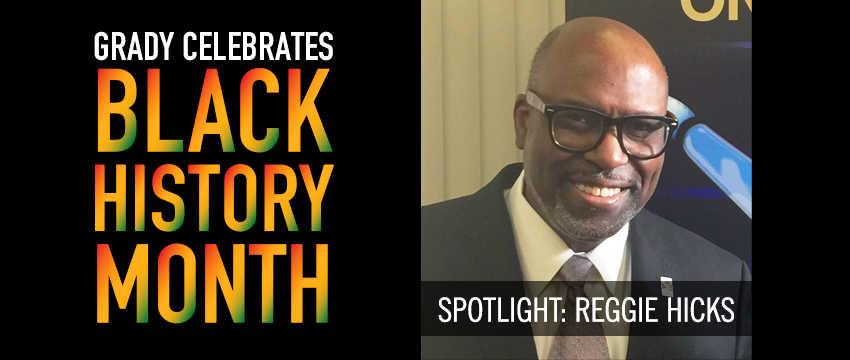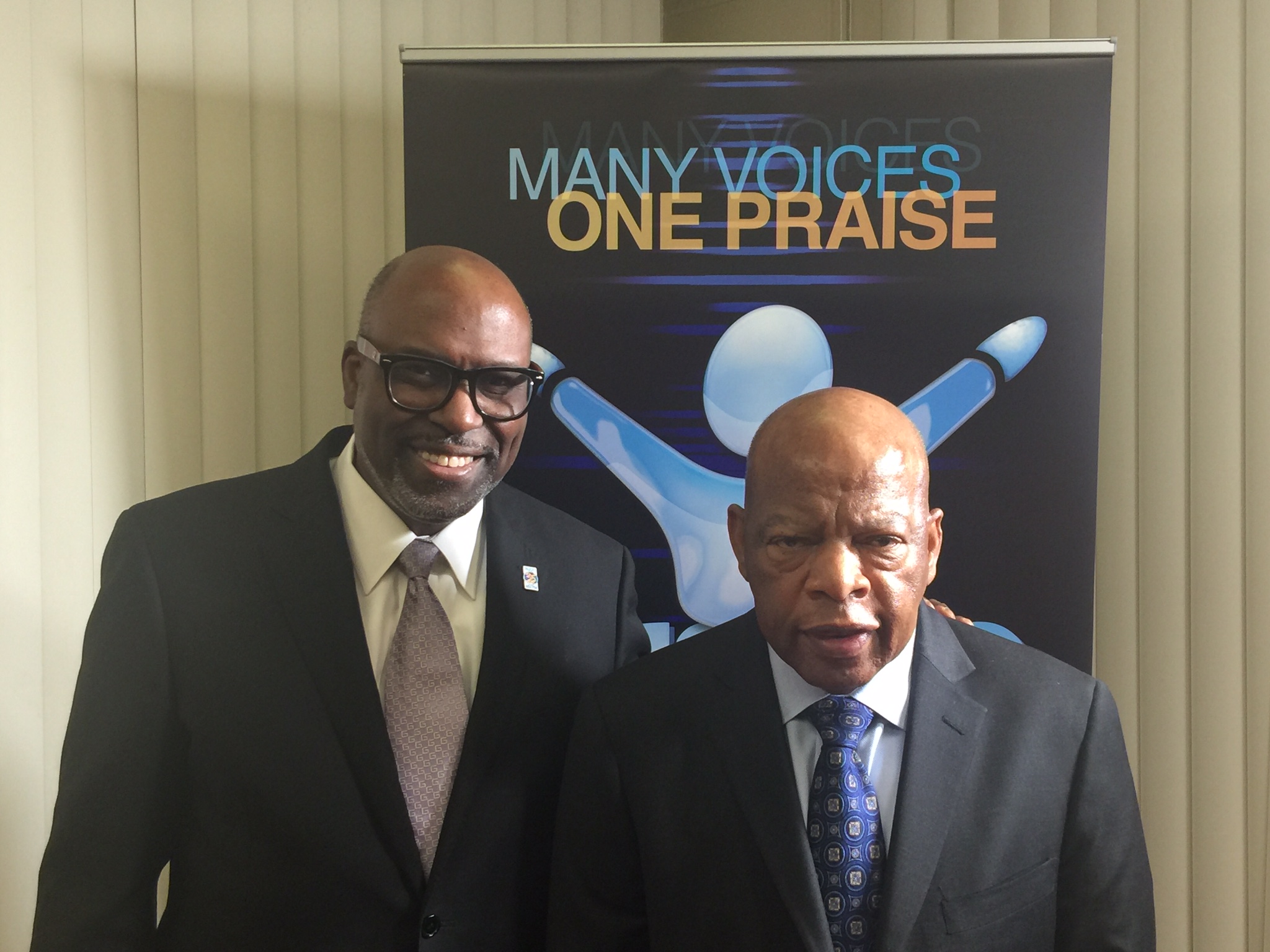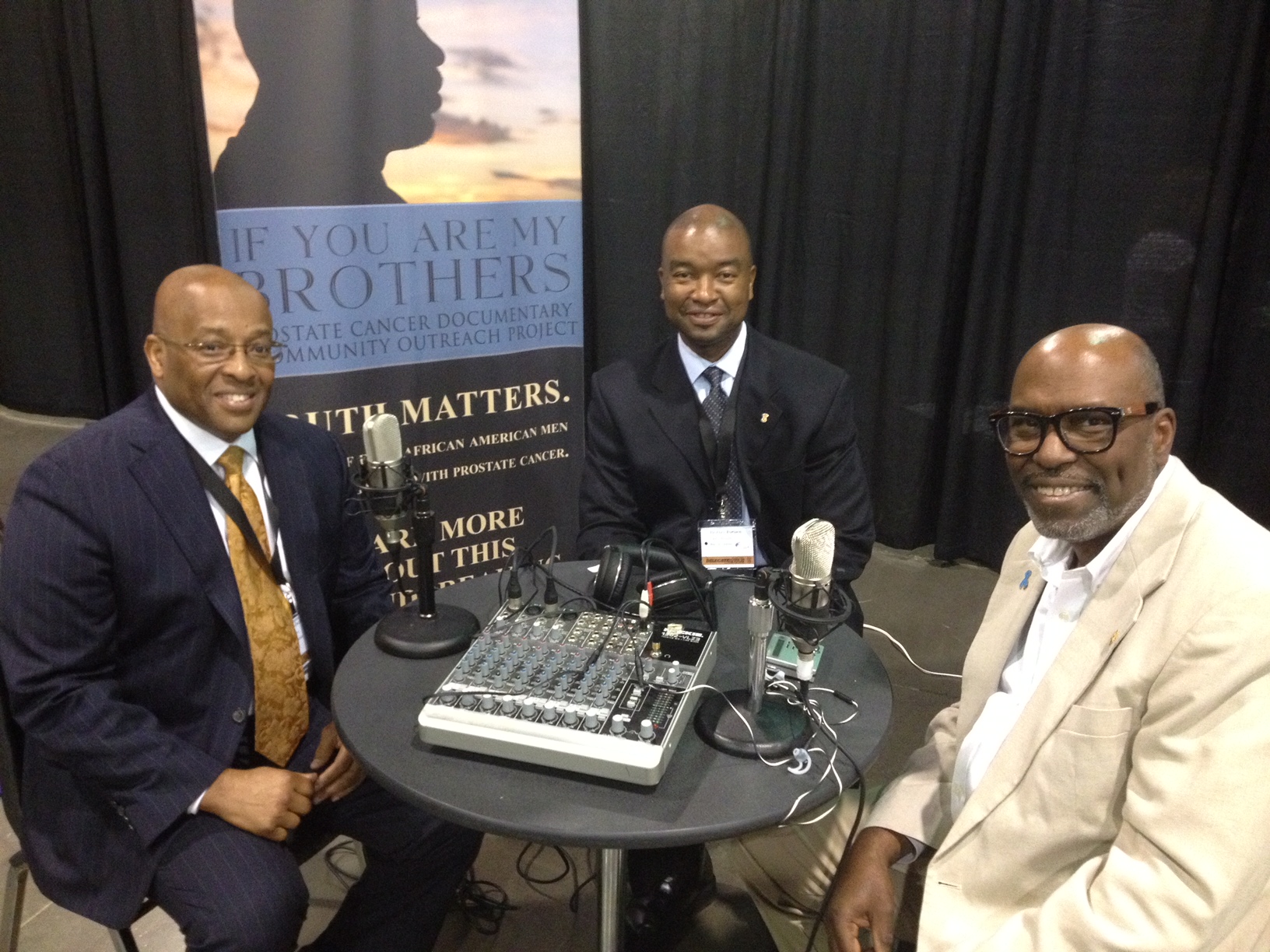Reggie Hicks reflects on broadcasting’s growth in diversity

Reggie Hicks reflects on broadcasting’s growth in diversity
Editor’s note: this is the fourth and final piece in a series of Grady College alumni profiles celebrating Black History Month.
Reggie Hicks (ABJ ’80) takes pride in being first. He was the African-American to serve as membership director for Georgia Public Broadcasting, the first African-American to produce a call-in information program on public radio and the first African-American to run the Georgia Fund, formerly the Annual Fund, at the University of Georgia.
Even beyond the gratification in first achievements, Hicks values personal influence and is especially reminded of its merit during Black History Month.
“We may not all have our names on buildings or have streets named after us, but we have all made a difference to our family, colleagues and communities,” Hicks said.

Hicks, a public relations major with a minor in marketing, experienced an exciting era in Athens. As Herschel Walker was racing to endzones in Sanford Stadium, just across the street, Hicks and his peers were blazing their own trails with the help of Grady College.
“It was a public relations co-op I got through Grady in Atlanta that propelled me into my career in public broadcasting,” said Hicks. “Had it not been for the co-op, I probably would not have ended up in broadcasting.”
It was the beginning of a broadcasting career that opened many opportunities for many journalists and highlighted important discussions for audiences nationwide.
Hicks has helped to raise millions of dollars for public broadcasting, mostly in Georgia and Alabama, but nationally as well. He has worked with WCLK-FM in Atlanta in a variety of roles including general manager, program director and development director. Hicks was also general manager at WJOU-FM in Huntsville, Alabama. He was executive Producer of “PowerPoint,” a two-hour program addressing issues from a minority perspective. The show aired from 2000-2007 in 50 markets on NPR and Sirius Satellite Radio. Recently, Hicks was co-executive producer of “Change Makers,” a live national public radio millennial town hall special on race, culture and change. Other work on his illustrious resume includes the American Red Cross and Atlanta’s Apex Museum.
He says the broadcast industry has made great strides in embracing diversity.

“There is competition for being diverse and trying to understand various audiences,” Hicks said. “It is opening up doors for minorities and our unique talents and cultural experiences that we bring to the table.”
Hicks admits many upper management and ownership roles in broadcasting lack diversity and it is a specific area where progress must be made. He says public broadcasting has done an adequate job of discussing and researching diversity efforts and that the industry is finally implementing plans for positive change and he sees a healthier national conversation emerging from years of well-intentioned inaction.
“We must be bold enough to ask difficult questions,”said Hicks. “Painful honesty and understanding are required to be serious about enacting proper change.”
Currently, Hicks is a consultant for public radio stations and is president and CEO of Straight Street Productions. He is in post-production of the film “If You are My Brothers.” It is a documentary chronicling Ralph Franklin, Hicks’ UGA Alpha Phi Alpha fraternity brother, and his battle with prostate cancer. While filming, Reggie was also diagnosed with prostate cancer. The documentary is scheduled to debut during prostate cancer awareness month in September.
This passion project is being produced to help other men confidently defeat illnesses with the help of their community. He says that kind of heart behind storytelling is the key to developing unity across any existing divides.
“We should understand people where they are and where they come from. You will be a much better communicator if you take the time to listen. Always put yourself in other people’s shoes.”